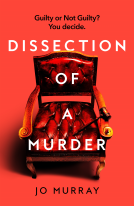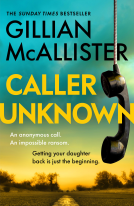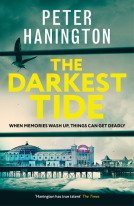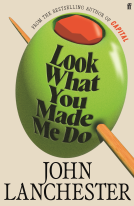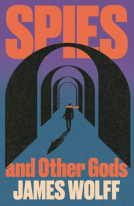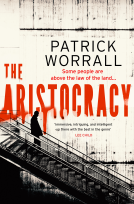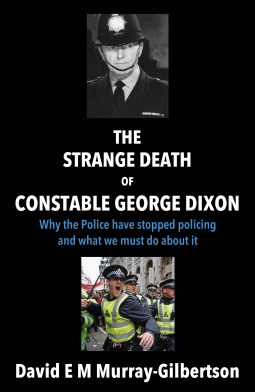
The Strange Death of Constable George Dixon
by David E M Murray-Gilbertson
This title was previously available on NetGalley and is now archived.
Send NetGalley books directly to your Kindle or Kindle app
1
To read on a Kindle or Kindle app, please add kindle@netgalley.com as an approved email address to receive files in your Amazon account. Click here for step-by-step instructions.
2
Also find your Kindle email address within your Amazon account, and enter it here.
Pub Date 28 Jan 2024 | Archive Date 15 Feb 2024
Talking about this book? Use #TheStrangeDeathofConstableGeorgeDixon #NetGalley. More hashtag tips!
Description
The 1950 film The Blue Lamp was an instant box office hit. The main character PC George Dixon was a friendly avuncular copper, diligently working his lonely night beat around Paddington Green. The film was followed by the television series, Dixon of Dock Green which ran on prime-time TV for twenty-one years. To many people at the time, and today, George Dixon was, and is, the archetypal police officer who should be patrolling our streets. Until the late 1960’s, The Blue Lamp was shown to every recruit constable as part of their training.
Today, the George Dixon style of policing is viewed by the police establishment, at junior level and by their bosses, as something between an embarrassment and an anachronism. Modern policing, they argue, is about targets and performance, about fast cars and body armour. They do not want to see a return to patrolling beats in all weathers and having face-to-face encounters with the public. But the decline in standards of policing in these islands has now reached a tipping point. The rape and murder of Sarah Everard by a serving police officer, attitudes to race and civil liberties, and failing leadership, has forced us to look over a precipice. We cannot continue in this way. The only solution is ‘root and branch’ reform.
A Note From the Publisher
Available Editions
| EDITION | Paperback |
| ISBN | 9781805141365 |
| PRICE | £11.99 (GBP) |
| PAGES | 376 |
Available on NetGalley
Average rating from 6 members
Featured Reviews
 Evan L, Reviewer
Evan L, Reviewer
My feelings about this book are complicated. The author is knowledgeable, as a former senior officer with the Metropolitan Police. He also writes well, so he keeps the reader hooked in to what could be a dry topic. Finally, he has done his research, so his arguments have support.
His general thesis, that the lack of real community policing in the UK, has undermined the overall quality of policing seems sound. He is particularly scathing on the subject of support officers serving in lieu of warranted constables, as well as the advent of car patrols and dual-officer patrols, all of which he contends work to isolate officers from the communities where they used to be integral. He further attacks the reduction in the number of police stations, the arming and dehumanization in the appearance of police, as well as aggressive crowd control tactics.
I found, however, that he occasionally comes across as a hidebound conservative, longing for the good old days. Some statements around racial relations seemed jarring, as well, though I sensed no racism inherent in the commentary. Finally, his style tends not to be balanced; he offers views, frequently though not always supports them with research, but doesn't offer opposing views or counter-arguments.
Finally the book reads like a cursory update of a manuscript written in 2010. Generally, most material stops in 2009. Limited data and anecdotes come from the 2010-2019 period but it feels tacked on.
If you are interested in policing in the UK read the book. But understand it is more of a polemic than an analysis, as the title suggests.
'Dixon of Dock Green' was before my time, but even in my lifetime I have seen the police in England go from being generally respected to being viewed with suspicion, irritation, or apathy. This book looks at the breakdown in the relationship between the police & the public in England., how it happened, what the consequences have been, & what could be done about it. Examining the last fifty years or so through the lens of race, sex, & class, the author shows how cases such as the murder of Stephen Lawrence, the murder of Peter Woodhams, & the abduction, rape, & murder of Sarah Everard by a serving police officer, have badly damaged the public's trust. The public want to feel safe & have confidence that the police, should they be needed, would respond with efficiency & empathy. That would most likely not be the case at present.
I thought it was a fascinating read, very well researched, & written in a way that is accessible for those who (like me) are not familiar with recent history of law enforcement structures, training, & behind the scenes. This is not some blanket 'the old ways were the best' diatribe, it is acknowledged that times have changed & with new technology new ways of doing the job develop, but argues that a top-down fundamental change in the way the police see their role in society & their relationship with the public has altered things for the worse. It's hard hitting but it's a book that needed to be written before it's too late.
My thanks to NetGalley & publishers, Troubador, for the opportunity to read an ARC.
 Janalyn P, Reviewer
Janalyn P, Reviewer
PC George Dixon thanks to movies and TV was the poster boy for the Pleasant English policeman he made the saying to protect and serve seem like a guarantee but in recent years but nice friendly officer and his reputation has been greatly diminished. As opposed to being there to help police seem like something you have to suffer through and their viewpoint of Joe and Jane public isn’t much different. This book mostly discusses how for the most part crimes hasn’t changed just what we called them has such as non-violent assault, antisocial behavior and on and on. They also discussed in the book called the presents of the police in England or afforded to everyone and even give great examples of that especially with the Peter Willingham case from talus view apartments and his tour of harassment he suffered through including getting stabbed in the face eight months before he was shot to death by the same culprits and there was no police investigation. They discuss race relations for this the main case discussed was the one about Steven Lawrence who even I in America had read about this a good boy who wanted to take his A-levels and qualify to be an architect from a good family but unfortunately four idiots decided he didn’t deserve that and stabbed him to death and the case wouldn’t be sold for 15 years and they say this wasn’t due to racism but to inefficiency I’m at the reading the story of Peter Willingham I can almost agree. They also discuss the closures of police stations across England Scotland and Ireland in Hull irregular it is to have a 24 hour police station close by… Something I find quite strange because I’ve never heard of a police station that closes. I mean Crime doesn’t have a time. Does it? this book covers much more like crowd control the education level police nowadays have to acquire it truly is an interesting read and although it is based in England their problems pretty much mirror the ones that we have here and I’m sure other places. This was a great book and one I highly recommend I want to think pennant sword press Anne Net Galley for my free Ark copy please forgive any mistakes as I am blind and dictate my review.
 Greville W, Reviewer
Greville W, Reviewer
This is an important book or indeed a polemic written by a former very senior police officer bemoaning the changes in the UK’s police force over the past 60 years from a time when the legendary George Dixon of Dock Green pounded his beat with personal knowledge of everyone he met on his rounds.
Those days of community policing are long done gone - more is theory- and the author explains how a combination of budget cuts, political correctness and a reliance on management speak has resulted in a police force that perhaps no longer suits the needs of the public at large.
Angry, yet reasoned and thoroughly researched, this book highlights the changes and the reasons for them and sets out a blueprint for the future that merits serious consideration.
 J. K, Reviewer
J. K, Reviewer
Thanks to Netgalley and the publisher for this eARC.
The Strange Death of Constable George Dixon is a fascinating and well-researched account of the life and death of one of Britain's most iconic police officers. The author, David E M Murray-Gilbertson, traces the origins and evolution of the Dixon legend, from his appearance in the 1950 film The Blue Lamp, to his reincarnation in the long-running TV series Dixon of Dock Green, to his eventual demise in the 1976 episode "Jigsaw".
The book also explores the historical and social context of Dixon's career, examining the changes and challenges that faced the British police force in the post-war era. The author draws on a variety of sources, including official records, newspaper reports, interviews, and personal memoirs, to paint a vivid picture of the realities and myths of policing in the 20th century.
The Strange Death of Constable George Dixon is not only a biography of a fictional character, but also a tribute to the real men and women who served and sacrificed in the line of duty. It is a compelling and insightful read for anyone interested in the history of British cinema, television, and law enforcement.
The author writes from a well-informed and thoroughly-researched perspective offering a personal but unbiased opinion of the state of the various police forces in the UK.
I should imagine anyone unfortunate enough to be living in an inner-London tower block in an area already brought low by poverty and years of neglect will find this book absolutely terrifying. Problems are so often dismissed as being caused by ethnic minorities and racial tensions. This is simply not true in a city as diverse as London. I spent many happy years living in Southall, one of the poorer London Boroughs, where my white skin never put me at risk amongst a community predominantly of Asian decent. I never once experienced or saw any violence. Why do the police often describe it as a 'no go' area.
Watching the film 'The Blue Lamp' (made and set during a period of post-war austerity) and the long-running TV series 'Dixon of Dock Green' (showing a rather quaint, toned down for prime time viewing idyll) offers a fictional but popular view of what policing was like before the relationship between police and public went sour.
I do hope someone, somewhere in authority will take note of the ideas put forward in this book before we sink further into anarchy.

